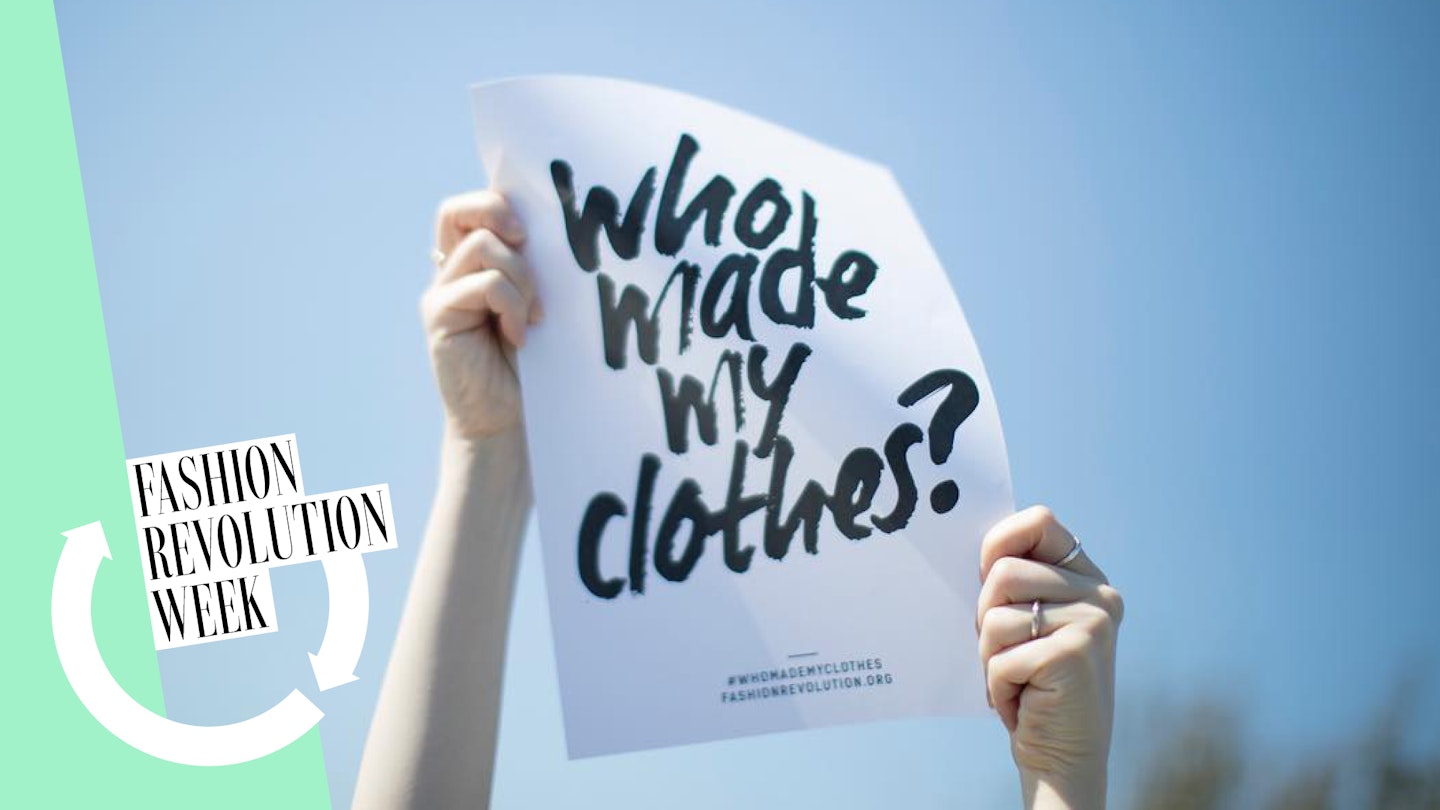Seven years ago today, the Rana Plaza factory collapsed in Bangladesh, causing thousands of deaths and leaving those behind picking through the rubble, desperately searching for loved ones – only to find clothing labels from some of the world's most prolific fashion retailers. It was a stark reminder of the human cost of the fashion industry – while clothes have become more transient than ever as we all seek to buy and wear more, what does this actually mean for those responsible for the manufacture of those clothes? Why would one person’s desire for a dress mean that another should put their life in danger every single day?
These sorts of questions birthed Fashion Revolution, an organisation led by founders Carry Somers and Orsola de Castro that works to enact real change within the global garment industry. Whether campaigning for fair living wages for workers or raising awareness about the environmental impact of fast fashion, Fashion Revolution’s starting point is transparency. After all, without it brands and corporations will not be held accountable for their actions. The question we should all be asking is: Who made my clothes?
As part of this ongoing campaign, Fashion Revolution publishes a Transparency Indexannually, ranking brands across the spectrum of fashion according to how much information they provide regarding – among other things – their supply chains, manufacturing processes and implementation of workers’ rights. The coronavirus pandemic has only helped to emphasise why it’s so important to be able to hold brands accountable. With brands suffering from cancelled orders and delayed payments, it’s the supply chain’s most vulnerable workers who will ultimately be hit the hardest.
This year, of the 250 brands assessed, H&M was awarded the top spot with a score of 73%. This is the first year since the Transparency Index’s inception, in fact, that brands have scored above 70%, with C&A claiming the second spot at 70%. Adidas and Reebok, meanwhile, both scored 69%, followed by Esprit at 64%, Patagonia at 60% and Marks & Spencer at 60%.
‘While we are seeing notable progress made on transparency, there is still much more fashion brands can do to provide credible and comprehensive data that enables consumers to make better decisions, unions and NGOs to help brands do better for workers and the living planet, and any other stakeholders to drive further progress,’ says Sarah Ditty, policy director and report author.
This year’s results do reflect the fact that the Index is slowly changing the way brands are operating. The average score across the 250 brands reviewed this year was 23%, up two percentage points from 2019. 40% of brands published a list of their first tier manufacturers, up from 35% in 2019, while 24% of brands published some of their processing facilities, an increase from 19% in 2019.
Interestingly, high street brands historically rank a lot higher than many of their luxury counterparts. Marks & Spencer, Wrangler, ASOS, Converse, Nike, United Colors of Benetton all fell within the 51-60 per cent bracket. Gucci is the highest scoring luxury brand at 48%, up from a score of 40% in 2019, and is the only brand to score 100% in the section on Policy and Commitments.
While there is clearly still a long way to go, it is without question that transparency is a vital tool with which to protect people around the world. If brands and retailers are permitted to work under the cover of darkness, all manner of abuses and violations can prosper. In asking the question ‘Who made my clothes?’, we are asking for those more vulnerable than ourselves to become visible.
